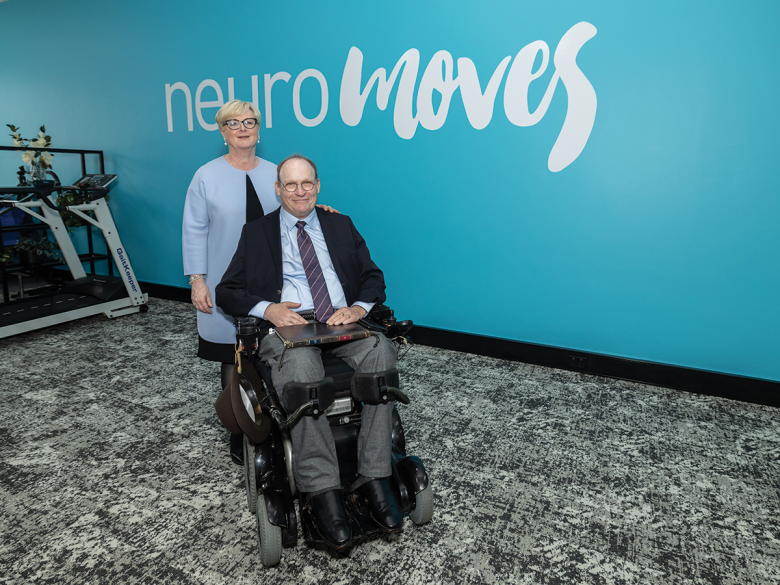A groundbreaking new therapy offers West Australians living with paralysis the chance of regaining significant movement and independence.
SpinalCure Australia has just opened the state’s first clinical trial site for neurostimulation, which is showing real promise for restoring lost function after spinal cord injury.
The new trial site at NeuroMoves in Fremantle means West Australians no longer have to travel interstate for access to experimental neurostimulation treatments.
“This is a major step forward for people in WA living with spinal cord injuries,” said Duncan Wallace, Executive Director of SpinalCure Australia, who lives with a spinal cord injury himself.
“It’s the first part of a program of exciting research we plan to bring to WA over the coming years as part of our upcoming National Roadmap to a Cure.”
Two trials
The trial is part of Project Spark, a national research initiative backed by leading scientists and delivered in collaboration with Neuroscience Research Australia (NeuRA), SCIA’s NeuroMoves division, and The CatWalk Trust, and supported by the Insurance Commission of WA (ICWA) and the Medical Research Future Fund (MRFF).
The Fremantle site is hosting two major trials under Project Spark:
- Get a Grip, funded by ICWA, targets breathing, and hand and arm function in people with cervical spinal injuries. Participants attend three sessions per week for six weeks. Eight WA participants have already enrolled or signed up.
- eWALK 2, funded by the MRFF, is focused on helping paraplegic and quadriplegic participants stand and walk again. Treatments run for 12 weeks and are set to begin in Perth in July, with screening already underway.
Up to 20 West Australians are expected to take part in each trial over the next three years. Regional participants are actively encouraged to apply, with travel and accommodation costs fully covered.
Help for thousands with spinal injury
Western Australia has the highest rate of spinal cord injury per capita in the country, with more than 2800 people currently affected.
The lifetime cost to the WA economy is estimated at more than $10.3 billion, and spinal cord injuries are one of the most costly and complex conditions to manage.

